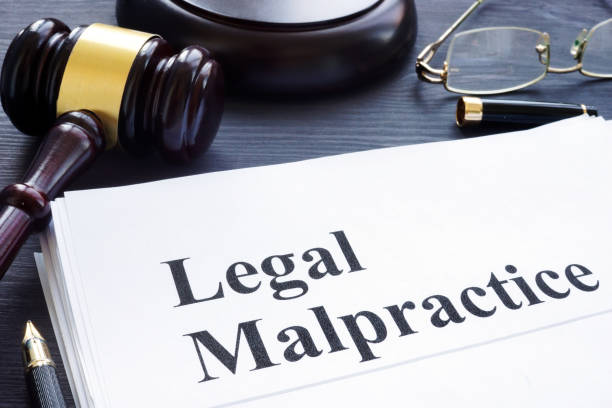Are you afraid to sue for malpractice? Overcoming this fear is the key to seeking the justice you deserve. Understand that navigating the complexities of a medical malpractice claim can be intimidating, but it doesn’t have to be.
In this context, we will unravel the common fears surrounding malpractice suits and provide insights into empowering yourself. Other than this, we will also discover the realities behind legal myths, understand your rights, and find support in a journey from fear to confidence.
So, are you ready to face the challenge and transform your apprehension into empowerment? Let’s delve into the world of medical malpractice, dispel misconceptions, and empower you to take control of your path to justice.
Understanding Medical Malpractice
Medical malpractice claims are built upon four fundamental elements. These include,
- Duty of Care
Healthcare providers are legally obliged to uphold a standard of care aligned with accepted medical practices, forming the basis for assessing malpractice.
- Breach of Standard of Care
Malpractice occurs when a healthcare professional deviates from established norms, requiring a meticulous examination of actions against accepted standards.
- Causation
Proving malpractice involves establishing a direct link between substandard care and patient harm, which is often a complex challenge.
- Damages
In a malpractice case, damages encompass the physical, emotional, and financial harm suffered by the patient, influencing compensation sought.
The Emotional Impact of Malpractice
Beyond the legal facets, the emotional toll of malpractice on patients is profound. Anxiety and stress often become unwelcome companions, eroding the trust patients place in healthcare providers. Coping mechanisms are crucial for those grappling with the emotional aftermath, highlighting the need for holistic support systems.
Reasons People Are Afraid to Sue For Malpractice
The decision to pursue a malpractice claim is often fraught with apprehension, influenced by various fears that deter individuals from seeking the justice they deserve.
Fear of Retaliation
The fear of retaliation is pervasive among individuals contemplating a malpractice suit. Patients worry that pursuing legal action against a healthcare provider might result in negative consequences, such as compromised future medical care, strained relationships with medical professionals, or even subtle discrimination. This fear creates a significant barrier, hindering many from taking the crucial step toward justice.
Worries About Damaging Relationships with Healthcare Providers
Establishing and maintaining a trusting relationship with healthcare providers is integral to effective medical care. The fear of damaging this relationship holds individuals back from pursuing malpractice claims. Concerns about potential hostility or a strained doctor-patient dynamic can dissuade patients from taking legal action, even when they believe they have suffered due to medical negligence.
Legal Process Intimidation
The legal process can be inherently intimidating, especially for individuals unfamiliar with its intricacies. The prospect of navigating complex legal proceedings, unfamiliar terminologies, and courtroom appearances can be overwhelming. This intimidation factor, coupled with the perceived length and stress associated with legal battles, contributes to the reluctance of many potential plaintiffs to sue for malpractice.
Debunking Common Misconceptions
Misconceptions about medical malpractice can hinder individuals from seeking rightful justice.
Myth 1: Suing Increases Healthcare Costs
Contrary to belief, malpractice claims typically don’t inflate healthcare costs; insurance covers legal expenses and compensation.
Myth 2: All Healthcare Providers Are Wealthy Targets
Not all healthcare providers are wealthy targets; malpractice claims aim to compensate, not financially burden practitioners.
Myth 3: It’s Always a Lengthy and Stressful Legal Battle
Dispelling the myth that malpractice cases are always lengthy and stressful, many are efficiently resolved through settlements.
Overcoming the Fear: Empowering Patients
Empowering patients to overcome the fear associated with pursuing medical malpractice claims is crucial for ensuring justice prevails, and individuals feel confident in seeking recourse.
Raising Awareness About Patient Rights
One key aspect of empowering patients involves raising awareness about their rights. Often, individuals may not fully grasp the extent of their entitlements when they’ve experienced medical malpractice. Sharing information about patient rights is a way to empower people, helping them identify violations and gain the confidence to take the right steps.
Encouraging Open Communication with Healthcare Providers
Establishing open communication channels between patients and healthcare providers is paramount. Fear often stems from misunderstandings or lack of clarity about the events leading to malpractice.
Encouraging patients to communicate openly with their healthcare providers can foster transparency, potentially preventing issues from escalating to malpractice levels. Clear communication also provides a foundation for addressing concerns before legal action becomes necessary.
Seeking Support from Patient Advocacy Groups
Patient advocacy groups play a crucial role in supporting individuals dealing with the complexities of medical malpractice. These groups offer valuable resources, guidance, and a platform for sharing experiences.
Connecting with others who have undergone similar challenges can be empowering, easing the isolation and fear often associated with malpractice cases. Patient advocacy groups provide a supportive environment where individuals feel understood and supported in their pursuit of justice.
The Role of Insurance in Malpractice Claims
Understanding malpractice insurance is pivotal. It influences the legal process and has broader implications for healthcare practices. A comprehensive grasp of how insurance operates in malpractice cases provides individuals with insights into the complexities of their claims.
Navigating the Legal Process
Choosing the right attorney is pivotal when navigating the legal process. Grasping the steps involved, from filing a complaint to the discovery phase, and deciding between settlement and trial, forms a clear roadmap for those contemplating legal action.
Thomas & Wan: Your Advocates in Medical Malpractice
Facing the fear of suing for malpractice requires reliable allies. Meet Thomas & Wan, legal experts with 55+ years of focused experience in medical malpractice. They’re not just lawyers but your dedicated partners, committed to turning fear into empowerment. At Thomas & Wan, LLP, your journey to justice is navigated with compassion and expertise, ensuring your concerns are heard and your rights protected.So, are you ready to transform fear into justice? Choose Thomas & Wan, LLP, as your dedicated partner in medical malpractice. Let’s take the first step toward empowerment. Contact us now for compassionate and expert legal support.




